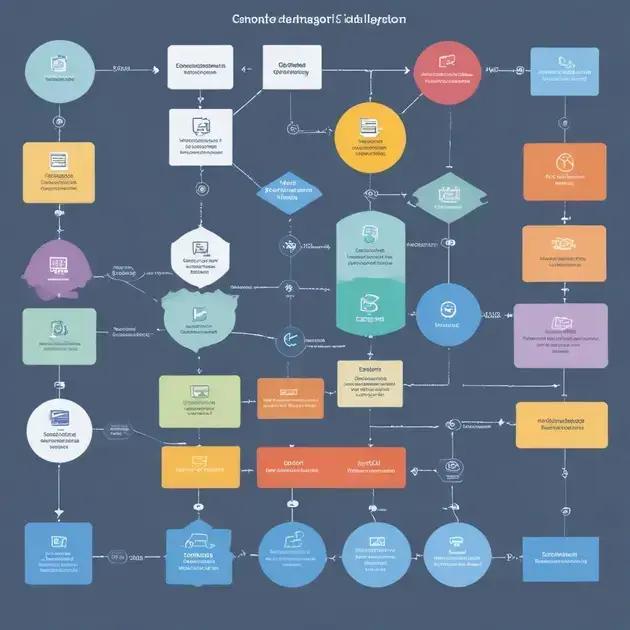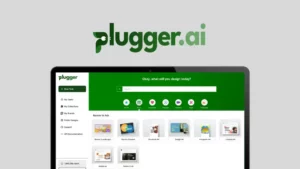Integrating CRM and email automation streamlines customer interactions, enhances personalization, and boosts marketing effectiveness. By leveraging data insights and automation best practices, businesses can achieve higher engagement and increased sales, making these tools essential for modern marketing strategies.
In the rapidly evolving world of digital marketing, CRM and email automation play a pivotal role in how businesses connect with customers. These tools not only streamline communication but also personalize customer experiences, making them feel valued. In this article, we’ll delve into the importance of these technologies, the advantages they bring, and how to harness them effectively in your marketing strategy.
Understanding CRM and Email Automation
Understanding CRM and email automation is essential for any business looking to enhance its customer relationship management. CRM, or Customer Relationship Management, is a technology used to manage interactions with potential and current customers. It helps businesses streamline processes, improve profitability, and nurture customer relationships.
What is CRM?
CRM software collects customer data from various channels, including a company’s website, social media, and email. This information is then organized to help businesses understand customer needs and preferences better. By using CRM, companies can provide personalized experiences and enhance customer satisfaction.
What is Email Automation?
Email automation refers to the technology that automates email marketing tasks. This can include sending out personalized emails triggered by customer behavior, follow-up messages, and newsletters. Email automation saves time and ensures consistent communication with customers.
The Connection Between CRM and Email Automation
When integrated, CRM and email automation enable businesses to send targeted messages based on customer interactions tracked by the CRM system. This synergy allows for better audience segmentation and improves the effectiveness of email campaigns.
Why is Understanding These Tools Important?
Grasping how CRM and email automation work together can lead to improved engagement with customers and increased sales. Businesses can track customer journeys more accurately and tailor their communications to meet specific needs, ultimately enhancing loyalty.
Benefits of Integrating CRM with Email

Integrating CRM with email automation brings numerous benefits that are crucial for businesses looking to enhance their customer interactions. This combination not only saves time but also improves the overall customer experience.
Enhanced Customer Understanding
With CRM integration, businesses can gain deeper insights into customer behavior and preferences. This information enables personalized email campaigns, making customers feel valued and understood.
Improved Communication Efficiency
Integration allows for automated emails to be sent at the right time based on customer actions. Whether it’s a follow-up after a purchase or a reminder for an abandoned cart, effective communication becomes seamless and efficient.
Targeted Marketing Campaigns
Businesses can segment their audience based on the data collected in the CRM. This helps create targeted email campaigns that resonate with specific groups, leading to higher engagement rates and improved conversion potential.
Consistent Branding and Messaging
Having integrated systems ensures that the messaging remains consistent across all platforms. This builds brand trust and reinforces relationships with customers.
Analytics and Performance Tracking
Integrating CRM with email tools provides analytics that help track performance. Businesses can evaluate which campaigns perform best, allowing for adjustments and optimization of future marketing strategies.
Best Practices for Successful Automation
Implementing effective automation within your CRM and email strategies requires a well-thought-out plan. Here are some best practices that can help ensure success.
1. Set Clear Goals
Before implementing automation, it is important to have clear objectives. Define what you want to achieve with your CRM and email automation, such as improving customer engagement or increasing sales conversions.
2. Understand Your Audience
Knowing your audience is key to successful automation. Utilize the data from your CRM to segment your audience based on behaviors, preferences, and demographics. Tailoring your messages to specific groups can enhance effectiveness.
3. Use Personalization
Personalized emails have higher open and click-through rates. Use the data from your CRM to include the recipient’s name, recommend products based on past purchases, or send customized content to engage readers.
4. Test and Optimize
Continuous improvement is crucial in automation. Regularly test different email formats, subject lines, and content to see what resonates with your audience. Use A/B testing methods to gather data and optimize your future campaigns.
5. Monitor Performance
Tracking the performance of your automated campaigns is essential. Utilize analytics tools to gauge open rates, click rates, and overall ROI. This data will help you make informed decisions and adjust strategies accordingly.
Common Mistakes to Avoid

Understanding the common mistakes in CRM and email automation can help businesses avoid potential pitfalls. Here are some errors to steer clear of when implementing these systems.
1. Lack of Clear Objectives
One of the biggest mistakes is not setting clear goals for your automation efforts. Without specific objectives, it is hard to measure success or know what features to implement in your CRM and email campaigns.
2. Neglecting Data Quality
Using inaccurate or outdated data can result in ineffective campaigns. Regularly clean and update your database to ensure that the information you have about your customers is precise.
3. Failing to Segment Your Audience
Sending the same email to all your customers is a missed opportunity for engagement. Segmentation allows you to tailor messages to different audiences, improving open and click-through rates.
4. Over-Automation
While automation can save time, over-relying on it can create a disconnect with customers. Ensure that your emails maintain a personal touch, even when automated.
5. Ignoring Analytics and Feedback
Finally, neglecting to monitor performance metrics can lead to repeating ineffective strategies. Regularly analyze your email performance data and gather feedback from customers to make necessary adjustments.
Future Trends in CRM and Email Automation
The landscape of CRM and email automation is constantly evolving. Staying ahead of emerging trends can help businesses maintain a competitive edge. Here are some key trends to watch for in the future.
1. Increased Use of Artificial Intelligence
Artificial Intelligence (AI) is playing a growing role in CRM and email automation. AI can analyze vast amounts of data to identify patterns and provide actionable insights. This helps businesses personalize communications and improve customer experiences.
2. Enhanced Personalization
Customers today expect tailored experiences. Automation will increasingly focus on delivering hyper-personalized content based on individual preferences and behaviors. This means using data analytics to create relevant and engaging email content.
3. Integration with Other Technologies
Future CRM systems will likely integrate seamlessly with various other technologies, such as chatbots, social media platforms, and customer service tools. This holistic approach will enable better data sharing and enhance customer interactions across multiple channels.
4. Focus on Customer Experience
There will be a stronger emphasis on improving the overall customer journey. Businesses will use CRM systems to gather feedback actively and adapt their strategies based on customer experiences, ensuring higher satisfaction rates.
5. Predictive Analytics
Predictive analytics will become more prominent in guiding businesses on future customer behavior. CRM systems will leverage data to forecast trends and customer needs, enabling proactive decision-making.
In Summary: The Power of CRM and Email Automation
Integrating CRM and email automation is vital for businesses aiming to improve customer engagement and boost sales. By understanding their benefits, avoiding common mistakes, and following best practices, companies can create effective communication strategies.
Moreover, keeping an eye on future trends like AI and predictive analytics will help businesses stay ahead in a competitive market. Embracing these tools can transform the way companies interact with customers, leading to increased loyalty and growth.
In the end, leveraging CRM and email automation can unlock new levels of success for any organization.
FAQ – Frequently Asked Questions about CRM and Email Automation
What are the main benefits of integrating CRM with email automation?
Integrating CRM with email automation enhances customer understanding, improves communication efficiency, and enables targeted marketing efforts.
How can I avoid common mistakes in CRM and email automation?
To avoid mistakes, set clear objectives, maintain data quality, segment your audience, balance automation with personalization, and monitor analytics regularly.
What role does artificial intelligence play in CRM and email automation?
AI helps analyze customer data for better personalization, automates routine tasks, and predicts customer behavior for more effective marketing strategies.
How can I personalize my email campaigns effectively?
Utilize data from your CRM to tailor messages, segment your audience, and create customized content based on past interactions to engage better.
What should I monitor in my email marketing campaigns?
Track key metrics like open rates, click-through rates, conversion rates, and customer feedback to continuously improve your email marketing strategies.
Are there any emerging trends I should be aware of in CRM and email automation?
Yes, trends include increased use of AI, enhanced personalization, better integration with other technologies, a focus on customer experience, and the use of predictive analytics.




